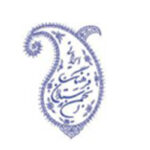The first day of Ridván

Historical view of Baghdad and the Tigris River. Photo: Baha’i International Community, taken by Effie Baker c. 1930
Sunset on 20 April marked the first day of Ridván. Of this time, Adib Taherzadeh has written [1]:
Thirty-one days after Naw-Rúz, on 22 April 1863, in the afternoon, Bahá’u’lláh moved to this garden, where He remained for twelve days. On the first day He declared His Mission to His companions. These twelve days are celebrated by the Bahá’ís as the Festival of Ridván.
The departure of Bahá’u’lláh from His house witnessed a commotion the like of which Baghdád had rarely seen. People of all walks of life, men and women, rich and poor, young and old, men of learning and culture, princes, government officials, tradesman and workers, and above all His companions, thronged the approaches of His house and crowded the streets and roof-tops situated along His route to the river. They were lamenting and weeping the departure of One Who, for a decade, had imparted to them the warmth of His love and the radiance of His spirit, who had been a refuge and guide for them all….
‘Abdu’l-Bahá has described how, upon His arrival in the garden, Bahá’u’lláh declared His station to those of His companions who were present, and announced with great joy the inauguration of the Festival of Ridván.
Sadness and grief vanished and the believers were filled with delight at this announcement. Although Baha’u’llah was being exiled to far-off lands and knew the sufferings and tribulations which were in store for Him and His followers, yet through this historic Declaration He changed all sorrow into blissful joy and spent the most delightful time of His ministry in the Garden of Ridván. Indeed, in one of His tablets, He has referred to the first day of Ridván as the ‘Day of supreme felicity’, and has called on His followers to ‘rejoice, with exceeding gladness’ in remembrance of that day.
The manner of the Declaration of Bahá’u’lláh’s Mission is not clear, neither is the identity of all who heard Him. One thing, however, is clear. During His ten years’ sojourn in ‘Iráq, although Bahá’u’lláh had alluded to His station, and identified Himself with the utterances of God revealed in His Tablets, He had never designated Himself as ‘Him Whom God shall make manifest’. It was in the Garden of Ridván that, in the course of His Declaration, He unequivocally did so, announcing Himself as the One Whose advent the Báb had proclaimed, for Whose sake He sacrificed Himself and for Whom He had established a covenant with His followers. That day was one of the most eventful in the life of Bahá’u’lláh. The whole day He was occupied with important affairs, which culminated in the Declaration of His Mission—the most momentous event of His ministry….
In a number of Tablets, most of which have not yet been translated, Bahá’u’lláh has extolled the sacredness and glory of the days of Ridván. One of these, revealed a few years after His Declaration, has been rendered into English by Shoghi Effendi. The following are some excerpts:
The Divine Springtime is come, O Most Exalted Pen, for the Festival of the All-Merciful is fast approaching. Bestir thyself, and magnify, before the entire creation, the name of God, and celebrate His praise, in such wise that all created things may be regenerated and made new. Speak, and hold not thy peace. The day star of blissfulness shineth above the horizon of Our name, the Blissful, inasmuch as the kingdom of the name of God hath been adorned with the ornament of the name of thy Lord, the Creator of the heavens. Arise before the nations of the earth, and arm thyself with the power of this Most Great Name, and be not of those who tarry….
This is the Day whereon the unseen world crieth out: “Great is thy blessedness, O earth, for thou hast been made the foot-stool of thy God, and been chosen as the seat of His mighty throne.” The realm of glory exclaimeth: “Would that my life could be sacrificed for thee, for He Who is the Beloved of the All-Merciful hath established His sovereignty upon thee, through the power of His Name that hath been promised unto all things, whether of the past or of the future.” This is the Day whereon every sweet smelling thing hath derived its fragrance from the smell of My garment—a garment that hath shed its perfume upon the whole of creation. This is the Day whereon the rushing waters of everlasting life have gushed out of the Will of the All-Merciful. Haste ye, with your hearts and souls, and quaff your fill, O Concourse of the realms above!
Say: He it is Who is the Manifestation of Him Who is the Unknowable, the Invisible of the Invisibles, could ye but perceive it. He it is Who hath laid bare before you the hidden and treasured Gem, were ye to seek it. He it is Who is the one Beloved of all things, whether of the past or of the future. Would that ye might set your hearts and hopes upon Him!…
Arise, and proclaim unto the entire creation the tidings that He Who is the All-Merciful hath directed His steps towards the Riḍván and entered it. Guide, then, the people unto the garden of delight which God hath made the Throne of His Paradise. We have chosen thee to be our most mighty Trumpet, whose blast is to signalize the resurrection of all mankind….
Rejoice with exceeding gladness, O people of Bahá, as ye call to remembrance the Day of supreme felicity, the Day whereon the Tongue of the Ancient of Days hath spoken, as He departed from His House, proceeding to the Spot from which He shed upon the whole of creation the splendors of His name, the All-Merciful. God is Our witness. Were We to reveal the hidden secrets of that Day, all they that dwell on earth and in the heavens would swoon away and die, except such as will be preserved by God, the Almighty, the All-Knowing, the All-Wise.
Such is the inebriating effect of the words of God upon Him Who is the Revealer of His undoubted proofs, that His Pen can move no longer. With these words He concludeth His Tablet: “No God is there but Me, the Most Exalted, the Most Powerful, the Most Excellent, the All-Knowing. [2]
[1] Adib Taherzadeh, The Revelation of Bahá’u’lláh, Vol. 1, pp. 259-273.
[2] Bahá’u’lláh, Gleanings from the Writings of Bahá’u’lláh, no. 14.
Category: Quotations








